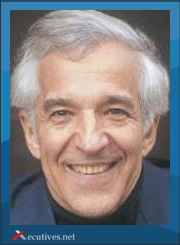
Vladimir Ashkenazy (c) Decca
Vladimir Ashkenazy, born in 1937, one of the most celebrated and recorded active pianists and conductors, has enjoyed a remarkable musical career spanning more than 5 decades. Over the past 30 years Vladimir Ashkenazy has focused on conducting, which has brought him together with great orchestras – e.g. London Philharmonia Orchestra, Berlin Radio Symphony Orchestra, Iceland Symphony Orchestra and Czech Philharmonic Orchestra – and great musicians from all over the world. Vladimir Ashkenazy studied at the Moscow Central School of Music before entering the Moscow Conservatory in 1955. The same year he won the second price at the Chopin Competition in Warsaw. One year later he won the first prize at the Queen Elisabeth of Belgium International Competition. In 1963, Ashkenazy emigrated to London. He became a citizen of Iceland in 1972, homeland of his wife, Thorunn Johannsdottir, a pianist as well. In this interview with Christian Dueblin, Vladimir Ashkenazy talks about the example of the Russian composer Dmitri Shostakovich in discussing the difficult situation of creative artists during the Stalinist era of the Soviet Union of the Forties and Fifties. He explains the intuitive identification with music and spiritual approach that enable him to interpret important composers in a way their work was meant to be understood. Ashkenazy shows his recognition and appreciation for jazz and folk music in general. His profound comments about his own musical gift, and a spiritual comprehension of music’s significance beyond words, afford us a great insight into the life of a talented and deeply reflective artist.
Xecutives.net: Mr. Ashkenazy, you have been asked quite a lot of things in your life. I know everyone has talked to you about your early career’s most important dates, about 1955, your Chopin competition, and then 1956, and 1962. Looking back at those difficult political circumstances for you as a young pianist, how would you consider this balancing act as a young musical talent, confronted with all a lot of politics in Russia, intrigues, the Cold War? How do you feel about that period after such a long time?
Vladimir Ashkenazy: Looking back, I think that I’m very grateful for the Conservatory and my teachers. So you must understand that the music departments in Russia were left mostly untouched by the government. The only thing is that, they insisted a lot Soviet music was played. Shostakovich, Prokofiev, and other composers who were not that significant, but they insisted that that music should be played. Otherwise, they left us alone. The only thing that concerned me was that I had to have two hours a week of Marxist-Leninism study, you know, the indoctrination sort of thing. Dialectical materialism, historical materialism, the history of the Party, and so on. That we had every week. We had to pass exams and get good marks for that. Music for us was an island of sanity. For composers that was not the same. Shostakovich had a difficult time. You can find out anywhere what he had to go through, and the other composers as well. But besides that, we musicians played Beethoven and Chopin, we played whatever we wanted to play. So in that sense we were lucky in the Soviet Union. The rest? Very difficult.
Xecutives.net: And why was it so different for composers?
Vladimir Ashkenazy: Composers had to compose. That means creativity, and creativity was watched very carefully from the top. You know that Shostakovich, after the war, was asked to compose a Victory Symphony. But you can’t call it a victory symphony. Because Shostakovich, knowing that, in the war, we lost twenty five million soldiers, not to speak of the population, where we lost millions. It was a victory but you couldn’t call it a wonderful victory because there was a price. Shostakovich, knowing that, he couldn’t compose a victory symphony. He composed number nine – Symphony No. 9 in E-flat major. And the Party, it wouldn’t accept that. They deprived him of his position as a professor of composition, stopped playing his music, and allowed him only to compose film music.
Xecutives.net: He did great film music!
Vladimir Ashkenazy: That was the only way he could make money to live, to stop fighting. And, just before Stalin died in 1953, he concluded an agreement with the United States on cultural exchange. It was a very limited agreement, but internationally it was praised. After all, former allies are now enemies, but now they’re getting a bit friendly. Why did Stalin do it? I don’t know. But he did it. And Shostakovich was included in the delegation of Soviet composers who would have to visit the United States. And from the United States there was Samuel Barber, Aaron Copeland, some others. So when the officials came to visit him at home, they told him, “Comrade Shostakovich, you have to go with the delegation to America.” And he said. “No. No I’m not going anywhere.” Now in the Soviet Union you couldn’t say no when they tell you to. “What do you mean you won’t go? The party and the government, does the same thing as you. You can’t say no!” “I’m not going”. Imagine, he said, “I’m not going.” So Stalin phoned him. Can you imagine? Stalin phoned him, because he’d concluded the agreement! He said, “Comrade Shostakovich. I hear you don’t want to go. Tell me. What is the problem?” “Ok, Comrade”, he said to Stalin (laughs) and he went on saying, “My music is not performed in my own country. What would I tell the Americans?” “Is that so!?” Stalin said. “Yes, Comrade Stalin!” Stalin said, “Let me see what I can do about it.” So, of course, the next day they rehearsed and played his music, and he went to America. And they “rehabilitated” him, so his music was back on the concert stage.
Xecutives.net: Back then, in Russia, at a certain time you realized that you had certain skills, and that you were good on the piano. In some interviews you said that you were “lucky”. On the other hand, you realized you had certain skills. How did you realize that?
Vladimir Ashkenazy: Other people realized that. As a child you don’t know. Something nature gives you, you do it, and the teacher says, you can do this, and others couldn’t do it. I didn’t look down on my friends in school. I was lucky that I had some natural gift to play the piano. So I was very grateful for that.
Xecutives.net: And when did you realize that you had a gift?
Vladimir Ashkenazy: That’s impossible to say. I don’t know. It was there. And when I was chosen to go to a competition, a Chopin competition, I realized that’s serious, that I’m one of the best if I’m to go to a competition where I won second prize, because I didn’t play the concerto terribly well. For the rest I was number one. When I realized I was chosen as one of the six Russian contestants to go to the competition in Brussels, I knew it was serious. Of course, then I realized and started practicing properly. I never practiced so much before.
Xecutives.net: But you were able to dominate a musical piece faster than other people.
Vladimir Ashkenazy: I could learn very fast, and I could do some technical things, perhaps better than others. That was a gift of nature, if you want to call it so. But I never ascribed that to my achievements. And then I realized since this was a gift from nature, I’d better do as much as I can to produce something worthwhile. Since you have a gift, use it and see what you can do. But I love music itself passionately. Music filled me with a tremendous spiritual uplift, you know? The great music from Bach to Shostakovich – a whole range of music. And I kept on buying records, scores and everything, because I was interested in all the music, not just piano music. That is how it eventually drove me to conducting music, because my horizons were very wide in music. I didn’t go to piano recitals, only very few, some of the great ones. But I went to orchestral concerts all the time.
Xecutives.net: Was this interest for music also because of the influence of your father, who was a pianist too?
Vladimir Ashkenazy: No, my father was a pianist of light music. I wasn’t interested in his music. So he never gave me one lesson. He couldn’t. All I can say is that the presence of music in our family, because my father played – he played some classical music, and that I liked – that probably attracted me. That’s my guess. And I probably heard on the radio some very good music. My mother always wanted me to hear good music, rather than light music. Then she asked me if I wanted to play an instrument. And I said, piano. So it went along, very gradual. There wasn’t just one point that made me want to be a musician. It was built up gradually, naturally.
Xecutives.net: Mr. Ashkenazy, was there a certain incident in your youth, or when you were a young child, when you got this feeling for classical music?
Vladimir Ashkenazy: No, there was no such incident. Life isn’t like that. Well, some people might have told you. They lie, probably, or at least they exaggerated it. My guess regarding my own experience is this: My father was already a pianist, playing light music, making enough money to support the family. I didn’t like his music. And when I heard some other music on the radio, or sometimes my father played what he learned at school–before he became a light music pianist–that I liked. And then there was the war, of course. When I was three and a half, we moved to Moscow. I am a Muscovite, my accent is a Moscow accent. The war started about two weeks before I became four years old. And during the war, of course, to stay in Moscow was very difficult. The Germans were very near Moscow, as you know. In November they were a few kilometers from the center of Moscow. Fortunately, we pushed them off. And for two years, I was out of Moscow. My father was a very good accompanist, because he was one of the best in the country. He was given the possibility of joining some other artists to go by train to the East. We ended up in Tashkent, in Uzbekistan. And I spent like one year there. It was a very warm climate, there was food and I was okay. My father came back to Moscow earlier. Then I came back to Moscow in ’43, when I was six. Then my mother asked me, “Would you like to study music, or something else?” I said, yes. What? I said, piano, since my father was a pianist. So she took me the very next day to a piano teacher. That’s how it started. Then I progressed very fast and I immediately could play this and this.
Xecutives.net: That’s the gift, or part of it!
Vladimir Ashkenazy: My teacher was amazed. So I had a gift, that’s what I remember. Friends at the music school – the music school which I entered in ’45 – they were terribly nice. They liked that I was so quick at learning everything. They were terribly friendly about it and never envious. I started winning competitions.
Xecutives.net: And who did you admire back then when you were young at the Conservatory. Was there a pianist in the world that you admired? An idol, or something like that?
Vladimir Ashkenazy: It’s difficult to say. There were many good pianists in Moscow, of course. Sviatoslav Richter was an exceptional artist. His attitude toward music seemed a spiritual message he had to give all the time. That probably affected me as a very young boy at the time. There was Emil Gilels, who was a wonderful pianist. Less than going to these piano concerts, I was more interested in going to orchestral concerts of all different repertoires. I remember one week I went to five or six orchestral concerts. And piano only interested me when it would be somebody like Richter or Gilels. So, that is how it developed.
And at some point I remember seeing Gennady Rozhdestvensky. He was in my school in Moscow and he was three or four years older than I am. And when he became already a professional conductor very early in his life, because he knew me and knew that I was interested in orchestral music and the repertoires, he said, “Why don’t you conduct?” I said, “No!” “Well, come to my place and play something and I’ll conduct.” I said, “I don’t want to conduct.” He asked me, because he could tell how close this was to me. So, eventually I became a conductor.
Xecutives.net: Much later, in ’78.
Vladimir Ashkenazy: Yes, something like that. But all my life is like this. I played so many concerts as a pianist and never thought I would be conducting. And then it happened. I never had this particular push for something in my life. I believe if something is going to happen, it’s going to happen. To try to do it and make a point of it is sort of artificial. It was never in my nature. It happened naturally, because some people wanted me to do a small concert. I did not do so well, of course. Then I moved to my assignment class. The orchestra asked me to conduct. They liked it. They said, “You should conduct more, because you have something to convey, to express.” “Well, maybe, but eventually – I’ll cut the long story short – my manager, Mr. Jasper Parrott, he saw me conduct once in Iceland, and he said, “Why don’t you conduct some orchestra, maybe in England?” I said, “No, no.” So one day I conducted the Philharmonia Orchestra of London. And they liked it. And they asked me to conduct more. And I had good press, even. So that was finally the cornerstone of my future. After that I thought, well, maybe I should really conduct now. And I have a huge repertoire by now.
Xecutives.net: Mr. Ashkenazy, you mentioned the word ‘spiritual.’ Playing the music of other people, and some of them very famous personalities like Chopin, Rachmaninov, Beethoven, it’s a great chance to delve into their lives, to cope with their lives. Some of those musicians and composers had quite difficult lives, full of suffering, such as Chopin, or Beethoven with his failing hearing and deafness. A musician would like to meet the composers’ requirements. What was your process to come closer to that music? There’s the technical part of music, lots of notes, but there is also this spirit, in a concert, in a piano concert. How did you feel what the composer wanted to express?
Vladimir Ashkenazy: You can’t answer this question, because there’s no explanation for that.
Xecutives.net: Is this the gift that helps you to get this spiritual approach?
Vladimir Ashkenazy: That of course. But not only. You have to try to understand what the composer tried to say. That sounds rude, but there is no way of describing how you begin to think and feel. To think and feel, because it’s both. Of course you have to use your brain to organize everything. You also have to have an identification with a certain composer – what made you feel he wanted to convey. Sometimes, to express it in words: Absolutely impossible!
Now, that’s the kind of intuitive identification with what the composer tried to say – to achieve – that’s the best I can describe it. And if you succeed to some degree, still nobody can say exactly what Beethoven wanted to say, or Schumann, or other composers. You can’t describe music in words in any case. But we try somehow to identify with their spirit and convey to ourselves first and then to the audience who listens to it. Sometimes we are successful, sometimes we are less successful. But we try as musicians, we try to understand what kind of message the composer wanted to give us. And that is all I’ve tried to do all my life.
Xecutives.net: In order to succeed to some degree to play what a composer wants to have you need to know the history, where those people grew up, their families and their careers, but the most important point is empathy. Therefore you need to know your own feelings.
Vladimir Ashkenazy: Yes, empathy is very important. And you have to know your own feelings, definitely. To know about history and about the careers will not help you very much, maybe a little bit here and there, but it’s not the most essential part. You have to know a little bit how they lived, what trips they took, what they did every day. That gives you a certain idea of what it was like at that time. But be aware of the fact that some artists don’t know much and play beautifully, too.
Xecutives.net: Is there a certain change regarding this approach of how to play music in the last few decades? I do not want to force you to talk about other people, but let us say, Lang Lang. He is a great pianist, very skilled. You know, technically skilled. But let’s ask, for instance, is there a difference between him, or his and your generation, looking back?
Vladimir Ashkenazy: Yes, I would say that there’s probably a difference in the last few decades. I think instrumental playing graduated from emphasis on the player to the emphasis on the music. This is a very important and very positive movement. It’s not one hundred per cent, of course, because some individuals are still fascinating the public because they can play this and this quite fast and quite brilliant and all that, and some segments of the audience don’t quite understand that. This doesn’t have much great validity. But the movement of performing art is toward identification with music rather than display of superficial values with virtuosity, with doing nicely this and nicely that. Now, we performers try to convey to the listeners what we think the composer wanted to express. Some time ago, it wasn’t like that. The emphasis was on virtuosity, yes, playing prettily. Now we try to understand what the composer wanted to say. Sometimes with success and sometimes not, but that’s the attitude toward music now, and before it wasn’t quite like this.
Xecutives.net: Does the music industry take advantage of that? There is a music industry behind lots of musicians at their disposal like Lang Lang. There is a management behind, CD labels etc., and they all want to earn money. It’s also a business, a music business.
Vladimir Ashkenazy: This is rather complicated, because you have to know inside out the music industry, you can’t say uniformly that there are managers and they look for talent and try to make money on that. There are plenty of those, people who can’t do anything but manage artists and try to sell them and make a percentage off their genius, also CD labels. There are many of these. But some artists manage not to be with them. And I know some of them. I could do without. But I have a very good friend who is a very good, intelligent person who wanted to manage me. But I could manage myself. But I like him as a person and as a friend and I let him do things for me.
I know some very important musicians who don’t have anybody, so they decide to do this, they ask a person you do this for me. And so they don’t have a manager. It would be very nice if all important artists would do it like that. But there are some artists who can’t make a very strong presence. They need help. And when they go to some manager and he says, “If you are with me, I’ll do it for you.” And that’s how it is. So there are artists who never needed a manager so they managed twelve fantastic careers, because their talent was above whether they had a manager or not. So they have probably a secretary. A person who will do things based on salary, and so there is no percentage. There are quite a few.
Xecutives.net: Music industry in general and all the CD labels they are economically seen in a difficult position at the moment. What do you observe as a musician?
Vladimir Ashkenazy: There are quite a few reasons for that. The CD market is so excessive now. Everything has been recorded a hundred times. Same people, same music. But music lovers, music collectors, have it all and sometimes when you have fifty recordings of Beethoven’s 3rd Symphony – and some of them are wonderful – you ask yourself if you really need to buy another one. Maybe not. You’re very happy with what you have. A complete answer to this question is hard to find. What I’ve told you is one of these angles.
Record industries are having a problem – they feel they can’t sell much more because they have almost everything, all the music. Orchestra recordings are very expensive; it’s very difficult to make a profit. If you can’t make a profit, you won’t do it. Some record companies will do it, although they know they will still not make a profit. Because they will still try to give a chance to let someone do something in particular. That is possible, though, unfortunately less and less. Instrumental recordings are much cheaper, all you need is a musician, an instrument and a studio, no orchestra to play. So they probably will still do it for some. Not for everybody, but with somebody they think will make a career and is being liked by the audience. Otherwise they won’t sell the record. Plus, they might move to another way of projecting, not selling CDs any more. I’m talking about YouTube, the Internet, the Web. These might take over.
Xecutives.net: They already did take over, at least that is what other great musicians said in interviews.
Vladimir Ashkenazy:: Already? Then I’m guessing correctly. And that might replace the CDs at some point. I don’t know. Did we know what would happen twenty years ago? No. And when I was sixty years old I didn’t even know CDs would be there. But some new things come in, and how they will shape this kind of music market. So you can’t predict. Because there will be always a certain segment of the population who understands that our great music from Bach to Richard Strauss or Shostakovich or whatever you want to say, is a very important element in our spiritual existence. It gives us something no other achievement in our lives could give us. Music can give us something like that. It puts us on another level of identifying with life and existence. And no other art has it. Only music has it. And that will not disappear. So I predict the future! I hope I’m right.
Xecutives.net: What you say, also the spiritual aspect, reminds me very much of Jon Lord, a rock musician who was always very interested in classical music, who talked very profoundly about his career with me and who always tried to combine music styles – classic, rock and jazz/blues. Have you ever worked with another kind of music, with pop or rock, like other musicians do and did?
Vladimir Ashkenazy: I know what you mean, but I don’t call it “classical” music, actually. I don’t like this word. I call it music that has a right to exist because it gives us so much. And other kinds of music like rock or pop do not inspire me. This music is generally so empty of an important message. I find nothing that would uplift me. Of course you can’t avoid it. It’s on television, on the radio, here and there, all the time. And it mostly is on such a low level. Because so many millions of people say, it’s so very nice. It seems to make them happy, which I accept and which is okay. Well, maybe sometimes their spiritual level is low and that it’s fine for them. But for most of my colleagues in my life, (laughs) they look at it as I do. “What’s all that for?” we say. Not because we’re mean people. We’re realistic people. That’s all. The reality nowadays is that music is there to sell because millions like it…
Xecutives.net: …it has become a business, like producing chocolate, Jon Lord would say.
Vladimir Ashkenazy: It’s definitely a business. The musicians and managers will starve, or become millionaires. Okay, let them become millionaires…
Xecutives.net: And what about jazz which is less connected with business?
Vladimir Ashkenazy: Well, jazz is a very interesting category, because it’s not really simplistic. Its area of expression is limited, of course. But there is something. Don’t forget, jazz is folk music. Folk music always has something to tell us. I know Russian folk music, Polish folk music, French folk music, and there is beautiful folk music everywhere, also English and Irish only to mention some of it. Fantastic! It comes straight from the hearts of people. It gives you a spiritual uplift. So, jazz has it too. It’s very interesting musically and it’s often very complex. Some very good musicians did a lot. André Previn, for instance, he was unbelievably gifted. He did all our music from Beethoven to Rachmaninoff, everything. He also could play very well jazz as a pianist. He was a great conductor, and a great pianist. And he played beautiful jazz. He could combine music.
Xecutives.net: Mr. Ashkenazy, thank you very much for giving your time for this interview. I wish you all the best and much success for your musical projects.
______________________________
Links
> Homepage
> Wikipedia
> Facebook
More interesting interviews for you:
-
- Richard Clayderman about “Ballade pour Adeline”, his approach to music and his personal feelings about interpretations
- Hazy Osterwald about the beginnings of his career, his love of jazz and the changes in music during and after World War II
- Dick Hyman about playing the piano, jazz and life
- Jon Lord about composing, his music career and the developments in the music industry
- Nicki Parrott about her love for Jazz, her career, music legend Les Paul and the significance of musical mentors for young talent
- Rita Juon about her father – Harlem Stride Pianist Joe Turner (1907 – 1990)
- Chris Hopkins über Jazz und Echoes of Swing, seine musikalische Karriere und über Hazy Osterwald, Ralph Sutton und Dick Hyman
- Dave Ruosch über seinen musikalischen Werdegang und die Blues- und Jazzszene in der Schweiz
- Artur Beul über sein Leben, seine Musik und seine Welthits
(C) 2015 by Christian Dueblin. All rights reserved. Other publications require the author’s explicit consent.






